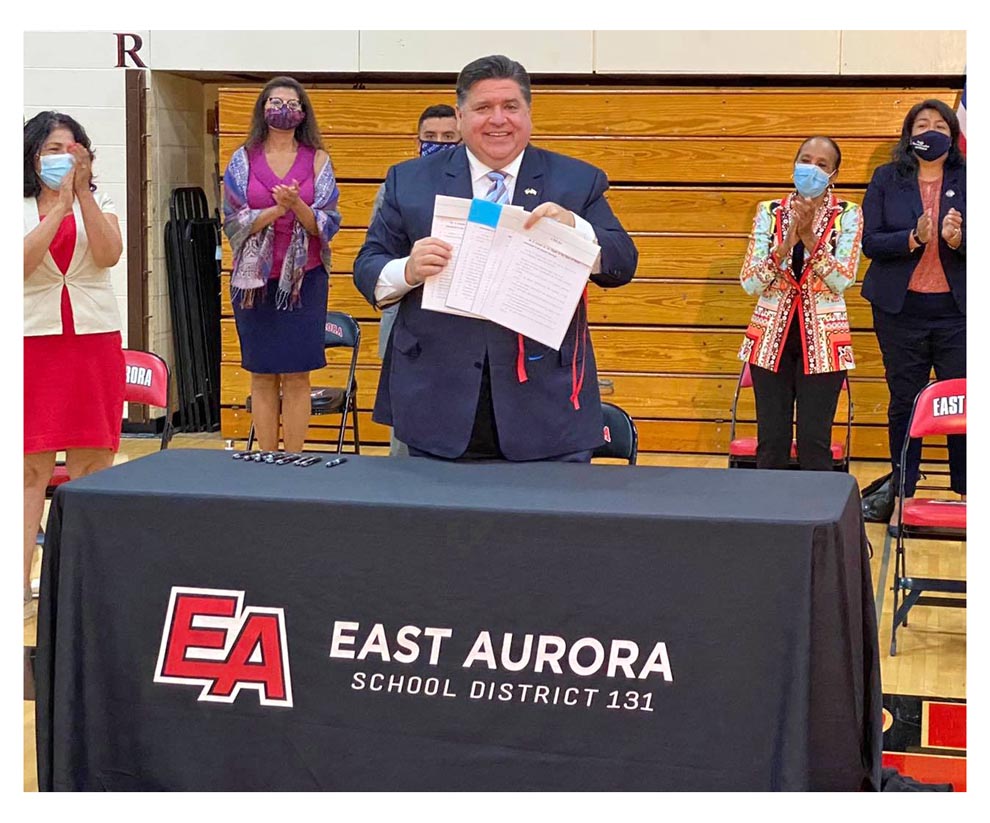Spearheaded by State representative Bárbara Hernández, D-Aurora, a package of new laws that will strengthen immigrant worker protections, address hate crimes, end local partnerships with federal immigration enforcement agencies, and establish a statewide immigrant task force were signed into law Monday by governor JB Pritzker.

“Illinois needs to be a leader in welcoming immigrants, and I’m proud to see that we are stepping up and giving these residents the respect and treatment that is deserved,” Hernández said.
“For years, immigrants have been marginalized and targeted by hate. Today’s bill-signing emphasizes the need to continue cracking down on immigrant abuse, while also reiterating our focus on making our state a more equitable place for everyone who lives here.”
Hernández joined the governor Monday at the Aurora Police Department for a ceremony in which four bills centered on immigrant rights that were signed into law. Included in the signing were:
• Senate Bill 2665, which establishes a statewide Immigrant Impact Task Force to examine how the State is treating immigrant communities and what initiatives would be most helpful in solving problems those communities face;
• Senate Bill 667, the Illinois Way Forward Act, which cuts back on the use of government resources to detain immigrants, or cooperate with federal immigration enforcement agencies including ICE;
• Senate Bill 1596, which makes assault and other offenses based on citizenship, or immigrant status hate crimes; and
• House Bill 121, which addresses employers and makes discriminating against individuals based on work authorization status a violation of the Illinois Human Rights Act and punishable by law.
“Illinois is again proving that it is a state committed to preserving the rights of every resident,” Hernández said. “These new laws mark great progress in the fight for equality for immigrants, but more work remains. I am thankful for the tireless dedication from advocates who made today a reality, and I look forward to continuing our work to address the challenges that still exist.”
—Office of State representative Bárbara Hernández

